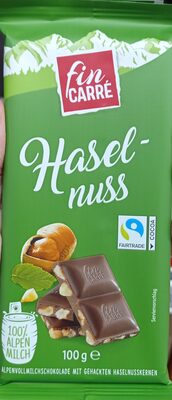
Barcode: 20029838
Haselnuss
HALAL
📝 Reason: All ingredients listed are either plant-based or derived from Halal sources such as milk and cocoa beans. No Haram ingredients or E-codes were identified.
📄 Certificates: None
Ingredients:
Details
Is Haselnuss Halal? A Comprehensive Analysis
When it comes to the Halal status of food products, careful examination of each ingredient is essential for consumers. The product in question, Haselnuss, has been verified as HALAL. Below, we dive deep into its ingredients to understand why it meets Halal standards and what each component entails.
Overview of Ingredients
Haselnuss is composed of the following key ingredients: Zucker, Kakaobutter, Haselnusskerne, Magermilchpulver, Kakaomasse, Süßmolkenpulver, Butterreinfett, Haselnussmark, Lecithine, and Vanilleextrakt. Importantly, all these ingredients are either plant-based or derived from sources that are considered Halal, such as milk and cocoa beans.
Ingredient Breakdown
- Zucker (Sugar) – Sugar is universally accepted as Halal. It has no E-codes associated with it and is simply derived from sugarcane or sugar beets.
- Kakaobutter (Cocoa Butter) – Cocoa butter, extracted from cocoa beans, is also Halal. Its status is unchallenged as it does not contain any animal derivatives.
- Haselnusskerne (Hazelnuts) – Hazelnuts are naturally plant-based, thereby making them Halal. They are a core ingredient of this product.
- Magermilchpulver (Skimmed Milk Powder) – Derived from milk, this ingredient is Halal as it comes from a permitted source within the Halal framework.
- Kakaomasse (Cocoa Mass) – Cocoa mass, like cocoa butter, originates from cocoa beans and holds a Halal status.
- Süßmolkenpulver (Sweet Whey Powder) – This ingredient is also Halal as it is derived from milk.
- Butterreinfett (Butterfat) – Butterfat comes from milk and is Halal. Consumers can confidently consume products made using this ingredient.
- Haselnussmark (Hazelnut Paste) – This is another plant-derived component, reaffirming the Halal status of Haselnuss.
- Lecithine (E322) – Lecithin is usually derived from soy or eggs and is considered Halal as long as the sourcing adheres to Islamic dietary guidelines.
- Vanilleextrakt (Vanilla Extract) – Assuming that no alcohol is used in the extraction process, vanilla extract is plant-based and Halal.
Understanding Halal Certification
Although Haselnuss does not bear a formal Halal certificate, each ingredient has been assessed to confirm that they all meet Halal requirements. The absence of Haram ingredients prevents any conflict with dietary practices embraced by observant Muslims.
Final Thoughts
The Halal status of Haselnuss is impeccable, validating the product for those who follow Halal dietary guidelines. By scrutinizing essential components, we can see that Haselnuss is free from any Haram ingredients or E-codes that might raise concerns.
This comprehensive evaluation allows consumers to enjoy Haselnuss, knowing that it aligns perfectly with their dietary values. For those seeking Halal-friendly culinary options or looking to incorporate nut-based flavors, Haselnuss stands as a sound choice.

